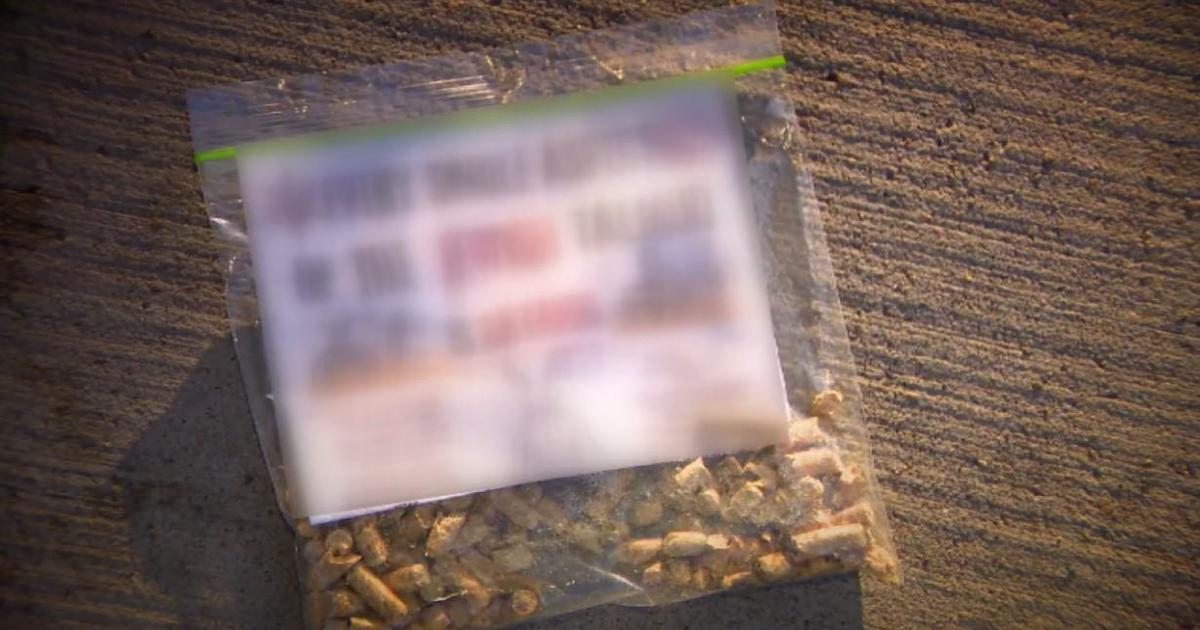Beavers Gets 6 Months, $10K Fine For Tax Evasion
Updated 09/25/13 - 1:58 p.m.
CHICAGO (CBS) -- Former Cook County Commissioner William Beavers got a big break from a federal judge on Wednesday, when he was sentenced to only six months in jail, and fined $10,000 for his conviction on tax evasion charges.
CBS 2's Derrick Blakley reports federal prosecutors had been seeking a sentence of nearly two years for Beavers, who was convicted in March of four counts of tax evasion.
In addition to serving six months in jail and paying a $10,000 fine, U.S. District Judge James Zagel ordered Beavers to pay nearly $31,000 in back taxes. He also ordered Beavers to report to prison by Dec. 2, though Beavers' attorneys will seek permission for him to remain free on bond while he appeals his conviction.
Beavers Gets 6 Months, $10K Fine
WBBM Newsradio's John Cody reports the normally outspoken Beavers did not speak on his own behalf at the hearing, but did talk to reporters afterward.
"He's the judge, okay? I don't want to piss him off, because then he'll probably do something I don't want him to do," Beavers said. "I ain't begging for nothing. I don't beg my woman, so you know I wouldn't go beg the judge, alright?"
Acting U.S. Atty. Gary Shapiro voiced rare disagreement with Zagel when it came to Beavers' sentence.
"We asked for more. I think more was justified. I think this tends to undercut what we say about public trust in public officials," he said.
Beavers remained defiant after his sentence was handed down. He predicted he'd have his conviction overturned on appeal. Beavers repeatedly has claimed the trial was unfair, and that federal prosecutors only went after him because he refused to wear a wire on fellow Commissioner John Daley.
"I won from day one, when I told how they lied, and how they tried to make me a stool pigeon, and how they did all of that. I put them all on notice," "I always win," Beavers said. "Six months? When I win the appeal, I'm going to make you all apologize."
Shapiro acknowledged federal prosecutors often approach someone facing possible prosecution to ask them to cooperate in another case, in exchange for leniency, but said, as far as he knows, Beavers was not asked to wear a wire.
"No one seems concerned about the hundreds of people that we approach in criminal investigations, and that agree to cooperate in making cases on other people," Shapiro said. "This jury knew nothing about that. They decided that Beavers committed tax fraud repeatedly, and that it had been proved beyond a reasonable doubt, so it seems to me it's completely irrelevant."
Even Beavers had been asked to wear a wire, Shapiro said that would be beside the point.
"It's one thing to approach someone with a total bluff. It's another thing to, in a federal court, in front of a federal jury, prove their crimes beyond a reasonable doubt," he said.
Beavers, who is also a former Chicago alderman, was accused using his campaign fund as a his personal piggy bank, and used more than $225,000 on personal expenses -- including gambling sprees at the Horseshoe Casino in Hammond -- without paying income taxes as required under federal law.
Federal prosecutors sought a 21-month sentence, saying Beavers has shown no remorse for his actions, and has blamed everyone but himself for his conviction.
Beavers' attorneys argued his public service as a former Chicago police officer, alderman, and county commissioner, meant he should receive probation.
Zagel called the case one of "personal indiscretion," not public corruption; though he said Beavers' actions weakened public trust in elected officials, and warranted jail time.
Shapiro said he disagreed with Zagel's assessment of that the case was not about public corruption.
"I think when Beavers chose to hide the money he was taking out of his campaign account, in various fraudulent ways – by making it appear they were loans, or by making it appear that the money he was gambling was being used for campaign expenses – he effectively embezzled that money," Shapiro said. "This is a classic abuse of trust – in a community, and in a state, and in a country where politicians are held in extremely low esteem; and I think this just adds to that picture."
During the trial, prosecutors showed jurors dozens of checks Beavers wrote to himself from his campaign fund, while he was playing the slots at the Horseshoe Casino. The feds said he never declared those checks as income on his tax returns, and never paid the taxes due.
Beavers' defense team argued the withdrawals from the campaign fund were tax-exempt loans, and virtually all of the money was paid back, or used for legitimate campaign expenses.



